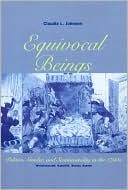Category Books
- Fiction Books & Literature
- Graphic Novels
- Horror
- Mystery & Crime
- Poetry
- Romance Books
- Science Fiction & Fantasy
- Thrillers
- Westerns
- Ages 0-2
- Ages 3-5
- Ages 6-8
- Ages 9-12
- Teens
- Children's Books
- African Americans
- Antiques & Collectibles
- Art, Architecture & Photography
- Bibles & Bible Studies
- Biography
- Business Books
- Christianity
- Computer Books & Technology Books
- Cookbooks, Food & Wine
- Crafts & Hobbies Books
- Education & Teaching
- Engineering
- Entertainment
- Foreign Languages
- Game Books
- Gay & Lesbian
- Health Books, Diet & Fitness Books
- History
- Home & Garden
- Humor Books
- Judaism & Judaica
- Law
- Medical Books
- New Age & Spirituality
- Nonfiction
- Parenting & Family
- Pets
- Philosophy
- Political Books & Current Events Books
- Psychology & Psychotherapy
- Reference
- Religion Books
- Science & Nature
- Self Improvement
- Sex & Relationships
- Social Sciences
- Sports & Adventure
- Study Guides & Test Prep
- Travel
- True Crime
- Weddings
- Women's Studies
Equivocal Beings: Politics, Gender and Sentimentality in the 1790s » (1)

Authors: Claudia L. Johnson, Jane Austen, Fanny Burney, Ann Radcliffe, Mary Wollstonecraft
ISBN-13: 9780226401843, ISBN-10: 0226401847
Format: Paperback
Publisher: University of Chicago Press
Date Published: June 1995
Edition: 1
Author Biography: Claudia L. Johnson
Claudia L. Johnson is professor of English at Princeton University and the author of Jane Austen: Women, Politics, and the Novel, also published by the University of Chicago Press.
Book Synopsis
In the wake of the French Revolution, Edmund Burke argued that civil order depended upon nurturing the sensibility of men—upon the masculine cultivation of traditionally feminine qualities such as sentiment, tenderness, veneration, awe, gratitude, and even prejudice. Writers as diverse as Sterne, Goldsmith, Burke, and Rousseau were politically motivated to represent authority figures as men of feeling, but denied women comparable authority by representing their feelings as inferior, pathological, or criminal. Focusing on Mary Wollstonecraft, Ann Radcliffe, Frances Burney, and Jane Austen, whose popular works culminate and assail this tradition, Claudia L. Johnson examines the legacy male sentimentality left for women of various political persuasions.
Demonstrating the interrelationships among politics, gender, and feeling in the fiction of this period, Johnson provides detailed readings of Wollstonecraft, Radcliffe, and Burney, and treats the qualities that were once thought to mar their work—grotesqueness, strain, and excess—as indices of ideological conflict and as strategies of representation during a period of profound political conflict. She maintains that the reactionary reassertion of male sentimentality as a political duty displaced customary gender roles, rendering women, in Wollstonecraft's words, "equivocal beings."
Table of Contents
| Foreword | ||
| Acknowledgments | ||
| Abbreviations | ||
| Introduction: The Age of Chivalry and the Crisis of Gender | 1 | |
| Pt. 1 | Mary Wollstonecraft | |
| 1 | The Distinction of the Sexes: The Vindications | 23 |
| 2 | Embodying the Sentiments: Mary and The Wrongs of Woman | 47 |
| Pt. 2 | Ann Radcliffe | |
| 3 | Less than Man and More than Woman: The Romance of the Forest | 73 |
| 4 | The Sex of Suffering: The Mysteries of Udolpho | 95 |
| 5 | Losing the Mother in the Judge: The Italian | 117 |
| Pt. 3 | Frances Burney | |
| 6 | Statues, Idiots, Automatons: Camilla | 141 |
| 7 | Vindicating the Wrongs of Woman: The Wanderer | 165 |
| Afterword: Jane Austen | ||
| "Not at all what a man should be!": Remaking English Manhood in Emma | 191 | |
| Notes | 205 | |
| Index | 233 |
Subjects
 Literary Criticism
Literary Criticism  English Literature
English LiteratureFiction Books & Literature
 Literary Criticism
Literary Criticism  General & Miscellaneous Literary Criticism
General & Miscellaneous Literary CriticismNonfiction
 Philosophy
Philosophy  General & Miscellaneous Philosophy
General & Miscellaneous PhilosophyNonfiction
 Social Sciences
Social Sciences  Gender Studies
Gender StudiesPhilosophy
 General & Miscellaneous Philosophy
General & Miscellaneous Philosophy  Women in Philosophy
Women in PhilosophyScience & Nature
 Social Sciences
Social Sciences  Gender Studies
Gender StudiesSocial Sciences
 Gender Studies
Gender Studies  Femininity
FemininitySocial Sciences
 Gender Studies
Gender Studies  Sex Differences
Sex DifferencesSocial Sciences
 Gender Studies
Gender Studies  Sex Role
Sex RoleSocial Sciences
 Women's Studies
Women's Studies  Feminism
FeminismSocial Sciences
 Women's Studies
Women's Studies  Women's Studies
Women's StudiesWomen's Studies
 Feminism
Feminism  Feminism - History
Feminism - HistoryWomen's Studies
 Women's Studies
Women's Studies  Women in Philosophy
Women in Philosophy
